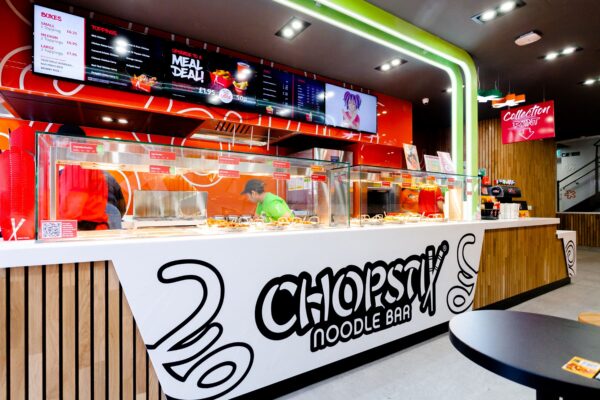Summary
In the airline industry, where customer experiences can be impacted by factors outside of the airline’s control, communication is crucial to maintain satisfaction and loyalty, especially during operational disruptions. In fact, the impact of disruption to annual global air passengers will increase to 7.3 billion by 2034, more than double the 3.5 billion passengers that will travel this year.
Disruption management is therefore becoming increasingly important, demanding greater investment in the cost-to-serve and improved collaboration to enhance the industry’s ability to respond effectively. The topic must be considered with the commercial realities of improving sales and seasonal offers through marketing, however, which was a key component of CACI’s project with easyJet.
The business case centred on reducing the cost of disruption, improving retention and increasing revenue through personalisation. With disruption estimated to cost airlines up to 8% of annual revenue due to refund requests, brand damage and customer churn, investing in a unified customer communications platform would help easyJet dramatically reduce these losses.
Company size
17,000+
Industry
Travel
Challenge
Operating in an extraordinarily complex and competitive category, easyJet was experiencing a significant reduction in customer satisfaction and was losing customers and shares to competitors. EasyJet’s own analysis showed CAST (Customer Satisfaction Score) scores declining significantly within only minutes of a disruption event, and the first hour is key to securing satisfaction.
While the airline understood that reversing this trend and mitigating losses would only be possible by overhauling their customer communications, they needed help prioritising and executing this transformation. The most significant challenges were improving the consistency of information between customer communication channels, targeting communication more effectively and quickly, improving accuracy through automation and enhancing their MarTech stack and data strategy.
Solution
EasyJet endeavoured to address critical gaps in the consistency, personalisation and timeliness of customer communications across all stages of the travel journey, along with the following KPIs:
- CAST score increasing to 13% over the next three years
- Reducing the amount of refund requests through better communications (50% of easyJet claims for refunds being rejected).
- Improving communications as 37% passengers are reportedly unhappy during disruption events.
At the heart of this initiative was a holistic service design methodology that fused MarTech, a data strategy and operational transformation into one cohesive solution. To make such changes, CACI helped develop and implement easyJet’s customer-facing strategy, with three primary goals:
- MarTech implementation:Identify, assess and implement the MarTech solution to enable customer-centric communications including marketing, service and disruption.
- Customer-led campaign optimisation: Improving marketing campaign targeting and messaging, reducing email volume and ensuring sales and disruption messages do not overlap.
- Disruption management: Developing a strategy to improve and unify communication around flight disruptions across multiple channels (from email to airports).
Alongside this, CACI had to consider the operational service and business plan to ensure that processes, back-office systems and staff could deliver the new ‘to-be’ strategy while considering stakeholders’ vision and real user data based on interviews and surveys.
CACI’s approach was to run the following series of connected workstreams:
- MarTech & customer strategy audit: Unpack challenges and limitations across the existing landscape, identifying areas of improvement and streamlining across data and tech, customer comms strategy and operating model, during which 17 workshops with easyJet stakeholders took place.
- Customer data foundations strategy: Defining the aspirational architecture to resolve data challenges and enhance data processing, management and communications.
- Customer marketing contact strategy: By delving into a range of behavioural, attitudinal and demographic data that had rarely been used for customer insight and targeting, CACI could identify and quantify the value of multiple cross-sell and upsell opportunities.
- Operational & disruption customer journey: Designing the blueprint of the easyJet end-to-end customer journey to understand expectations, performance analysis and opportunities for experience optimisation. CACI also developed an aspirational customer journey, showing an improved, consistent, multi-touch experience for disrupted travellers as they prepare for their flights.
- MarTech implementation: CACI helped easyJet select new MarTech platforms (mParticle and Braze) and implement the new solutions, including campaign migration and activation. Working collaboratively with MarTech partners, CACI and easyJet stakeholders defined requirements that would help power personalised customer communications.
- Operational & disruption contact strategy: Leveraging new MarTech and customer journeys, designing contact strategies to increase relevancy and accuracy through personalised messaging.
- Operational change: Understanding the current design and team structures across the marketing function, identifying challenges and bottlenecks in processes, skills gaps and capabilities, leading to a defined operating model that would enable easyJet to fully leverage the new capabilities, redirect core skills to higher-value activities and create efficiencies by redefining roles and responsibilities across core teams.
The use of Miro, a cloud-based visual collaboration platform designed to help teams brainstorm, plan and execute projects in a shared digital space, was also critical in the delivery of this project. Finally, easyJet was supplied a Socialisation Pack to consolidate findings, strategies and tactical actions to be shared across the business.
Results
This initiative has already delivered measurable commercial and experiential impact, helping easyJet become more resilient, customer-centric and operationally efficient.
Through the setup and implementation of the new MarTech stack, CACI enabled a real-time customer communications platform for easyJet that moved away from legacy systems and technical debt, including:
- 10+ data and system integrations, with web, warehouse, analytics and automated GDPR management
- 200+ customer and behavioural events/data points that can be used for targeting and personalisation
- Migrating over 40 million customer profiles, taking them through a process of IP warming to ensure campaign deliverability
- Deploying 500+ campaigns, including real-time behavioural triggers and data processing campaigns
- Training and support for easyJet development and communications teams.
CACI was also tasked with proving the value of a customer-first communications approach against the existing trade-led strategy. The team designed multiple contact strategies around different audiences to bring the new strategies to life while utilising easyJet’s price-led messaging. The resulting Winter Sale Campaign delivered:
- 57% fewer emails sent (but more personalised)
- 5% increase in email open rate
- 21% increase in click through rate
- >2x revenue generated per email sent.
Furthermore, CACI developed a comprehensive toolkit that, when implemented, will enable easyJet to lead the category in disruption management. Complete with 203 data-driven, actionable recommendations, the airline can significantly improve passenger experiences during disruption events across three distinct categories of opportunities. These either directly depend on or enable communication management capabilities in the near-mid-term.
These results demonstrate how strategic transformation, when paired with service design and data-driven insight, delivers value at scale. EasyJet is now positioned not only to weather disruption but win customer loyalty.




